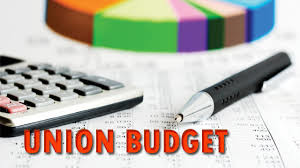The Finance Minister, Arun Jaitely have concluded the fourth budget presentation.
Finance Minister, Arun Jaitley placed consumers before rigid fiscal discipline as he spelt out a carefully crafted plan to boost people’s spending power, create jobs and improve rural incomes in 2017-18 Budget, mixing welfare economics with a new wave of reforms.
Arun Jaitely focuses that “Predominance of cash in our economy makes it easy for people to avoid taxes, we are largely a tax non compliance society, when too many people evade taxes burden falls on those who are honest”
Here are the highlights of Jaitley’s budget for the 2017/18 in regards to corporate taxation and indirect taxation for fiscal year that begins on April 1, 2017
1. Cash transactions restrain
No transaction above Rs 3 lakh can be made in cash.
2. Reduction in corporate tax rate
Tax rate for companies with an annual turnover up to 50 crores to be reduced to 25%, to strengthen MSME sector. About 67 lakh companies fall in this category. 96% of companies to get this benefit.
3. Restriction on cash donation to political parties
A proposal to receive all government receipts beyond a certain threshold through e-modes under consideration
The Political funding reforms proposed are:
- Maximum amount political party can receive in cash donation will be Rs 2000 from any one source.
- Political parties will be entitled to receive donations by cheque or digital mode
- Additional step amendment proposed to RBI act to enable issuance of electoral bonds in accordance to scheme by GOI. Donor could purchase bonds from authorised banks. Redeemable only in registered accounts of party.
4. Extends relaxation on withholding tax on foreign investor’s interest income from debt until June 30, 2020
5. Basic customs duty on LNG to be reduced from 5% to 2.5%
6. Minimum Alternate Tax(MAT)
The abolition of MAT as demanded by industry associations have been ruled out. However, it have been
proposed to carry forward of MAT credit upto 15 years instead of 10 years.
7. Restriction on cash transactions
No revenue and capital expenditure in cash above Rs 10000
8. No major changes proposed in existing regime of indirect taxation.
9. Boosting digital payments
To push digital payments, BCD (basic custom duties), excise duties, CVD (countervailing duties), SAD (special additional duty) on POS machines have been exempted.
10. Amendments to the structure of Authority for Advance Rulings
With a view to promote ease of doing business, it has been decided by the Government to merge the Authority for Advance Ruling (AAR) for income-tax, central excise, customs duty and service tax.
This budget was aimed at strengthening the hands of the poor while also showing its commitment to eradicating black money and corruption. Overall these measures will lead to greater transparency and broad basing of the tax base.
We would provide more detailed analysis when fine print is available.

 Toll Free:
Toll Free:  Contact Us
Contact Us


